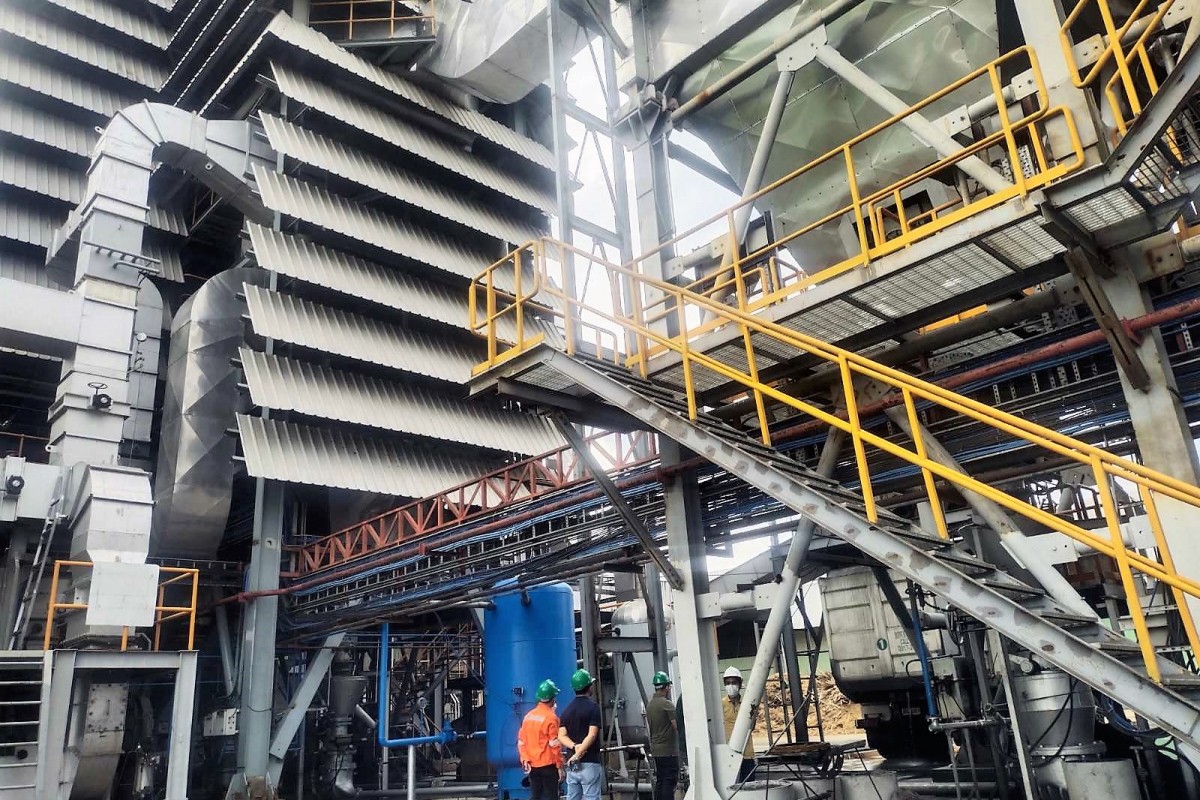TALAVERA, Nueva Ecija -- The Green Innovations for Tomorrow Corporation (GIFTC) has carried out an economical and sustainable solution to address the problem of agricultural waste in this province—recognized as the ‘rice granary’ of the Philippines—by converting rice husks as biomass into renewable energy.
With rice production as the major source of livelihood in this palay-producing town, large volumes of rice husks are regularly being disposed of or burned in open fire, posing both environmental and health hazards to the community.
GIFTC aspired to recycle and make this agricultural waste useful by establishing a biomass power plant that would generate electricity for households in the province.
To help make this vision a reality, GIFTC sought financial assistance from the Land Bank of the Philippines (LANDBANK) and was granted loans in 2013 and 2018 totaling P1.15 billion under the Bank’s Renewable Energy Program.
Part of the LANDBANK loan bankrolled the construction of GIFTC’s biomass power plant in 2016, which is currently operating at a capacity of 10.8 megawatts electric (MWe).
The rest of the loan was allocated for the reimbursement of cost utilized for warehouses, dormitories and other structures, replacement or repair of power plant parts, permanent working capital, including the acquisition of rice husk.
“LANDBANK was the first financial institution that believed in GIFTC’s vision for a sustainable future for our town, and for the whole country. We wouldn’t be where we are now if it weren’t for their assistance,” said Engr. Martin O. Vendivil, Assistant Chief Operating Officer of GIFTC.
Through the services of a grid operator, GIFTC’s biomass power plant can supply electricity to an estimated 6,480 households in selected municipalities and cities in Nueva Ecija, including other areas in neighboring provinces.
The GIFTC power plant consumes around 480,000 kilograms of rice husks per day bought from rice mills in the area, significantly decreasing agricultural waste in the town.
More importantly, the energy corporation helps reduce the emission of greenhouse gases, while preserving the country’s natural resources by manufacturing a renewable energy source.
“LANDBANK fully supports projects that harness the potential of renewable and alternative energy resources. We will continue to work with development partners in preserving our environment and promoting climate change adaptation,” said LANDBANK President and CEO Cecilia C. Borromeo.
Through the LANDBANK Renewable Energy Program, the state-run Bank aims to finance the development of renewable energy sources and increase access to reliable, clean and sustainable power to help mitigate the effects of global warming and climate change in the country.
Eligible borrowers such as electric cooperatives, local government units (LGUs), government-owned and controlled corporations (GOCCs), and government agencies may borrow up to 90% of the total cost of the project.
Cooperatives, associations and private borrowers categorized as single proprietorships, partnerships, or corporations may also borrow up to 80% of the total project cost under the Program.
Term loans for working capital and project preparation are payable up to five (5) years with a six-month grace period on principal payment, while loans for capital expenditure are payable based on the borrower’s cash flow up to 15 years, with a three-year grace period. The interest rate shall be based on the prevailing market rate but not lower than 5% per year.
As of 31 March 2022, LANDBANK has approved loans totaling P20.1 billion to 56 borrowers nationwide under the Renewable Energy Program, underscoring the Bank’s thrust of promoting sustainable finance and development. (LANDBANK)




